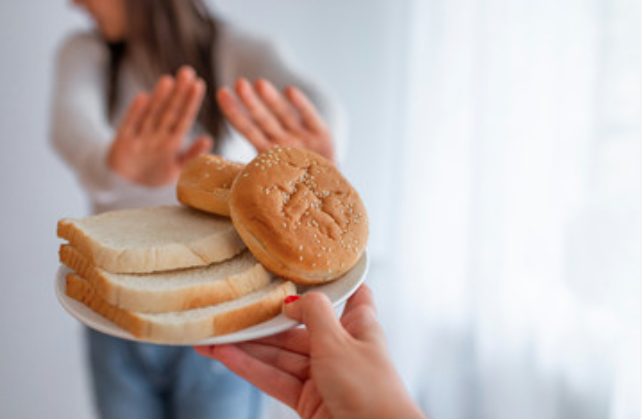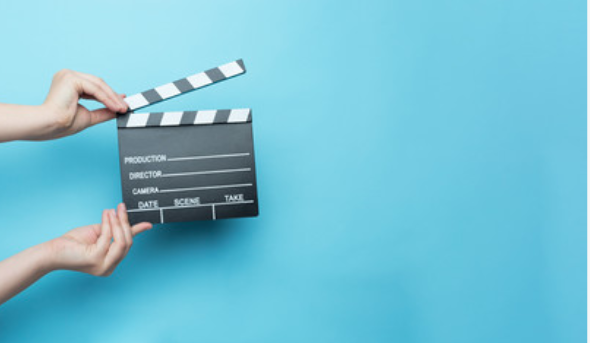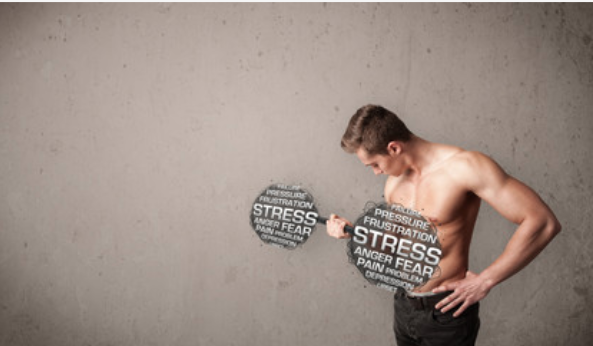|
Neuroscience shows us being present is a real skill which overcomes negative emotion:
https://www.google.com/…/mindfulness-and-being-present-in-t… It stands in stark contrast to the everyday bellyaching we are all apt to say and hear: “I can’t wait until this is over.” “When will it all end?” “If I can just survive until...” Once these roadblocks are surpassed, there will be another set. Once the summit of this mountain is reached, there will be another. Once you’re past this overwhelm, there is more. There’s a misattributed quote in the spirit of the Dalai Lama but probably never spoken by him in this way exactly: “Man surprised me most about humanity. Because he sacrifices his health in order to make money. Then he sacrifices money to recuperate his health. And then he is so anxious about the future that he does not enjoy the present; the result being that he does not live in the present or the future; he lives as if he is never going to die, and then dies having never really lived.” I joke with people that in two years when I turn 40 years old I can begin “living.” Finally, I’ll have overcome enough challenges, learned enough of what not to do, obtained enough financial stability, proven myself professionally/business-wise/otherwise, I can BEGIN to live. I joke. But our minds try to problem-solve this way. As if “life” should be without difficulty or challenge, we imagine reaching a point where life can begin because the challenges are all behind us. There’s no need to chime in about the struggles of life. I understand. It may be hard to believe, but I have known one or two people with struggles. Lol. I think I faced one or two life challenges in my day. Only one or two. So I probably could never understand what you’re going through. My point is about fixation. If you are fixated on arrival, if you are fixated on achieving a point, you’ll miss life. I know it well. While I was visiting the ER every 4 weeks with my son for 4 years, I kept wondering when the impossibility would end. When I couldn’t lie down without impossible nerve pain for months on end, I wondered when I would be able to enjoy life again. But now I look back at photos or videos from those time periods. There were a lot of good times too. My sweet boy was (and is) the coolest dude. Clients and family and peers were doing really great things while I was in nonstop overwhelming pain every day and night. If you stare at the destination, especially when there really isn’t one, you’ll miss the journey.
0 Comments
Kindergarten Teacher: class, in a couple of weeks we're going to be getting a visit from... SANTA CLAUSE!
Five-year-old me: (in an aside to my buddy) you know, there's no such thing, right? That's baby stuff. My buddy: (nods while internalizing the truth) huh. That makes so much make sense. Rest of the class: *domino effect of whimpers leading to uproarious cacophony of wailing and gnashing of teeth* Kindergarten Teacher: CLASS! Class. Listen to me. Of course it's not baby stuff. Listen. I'm 30 years old! And I STILL believe in Santa Clause. Five-year-old me: Lady, there's no way (long pause) that you're 30 years old. And off to the principal's office I went, again. I consider myself incredibly fortunate to be missing the basic human wiring which feels compelled to go with a crowd, seek their affirmation and acceptance, vie for their approval, eat like them, think like them, live like them. As American health and fitness is acceleratingly degenerating, this personality trait has helped me a lot. It makes it a lot easier for me to be healthy, because I just don’t ever make food choices or lifestyle behavior choices based on popularity, fitting in, or what everyone else is doing. I realize that that’s counter to the social nature of humans, and so it’s very difficult for others to entertain this thinking. But, I would challenge you, every time you’re starting to feel “weird” for making a “different” food choice or stress management choice (Ie - going to bed on time) or grown-up decision, that counterculture feeling is leading you in the right direction. The sideward glances you get for skipping ice cream or alcohol are confirmation that you are on the right path. The judgmental tone of friends and family when you stop eating bread is a powerful acknowledgment that you are working your way into an ever-increasingly small sliver of Americans who have decreased risk of cardiovascular disease, strokes, cancers, neurodegeneration, and other metabolic conditions. There might’ve been a time where adhering to your tribe’s principles would’ve kept you alive longer. It once made sense. That is no more the case. It hasn’t been for a while in the modern world. A lot of times people get hung up on their healthy lifestyle efforts, thinking, “why do I have to try so much harder than everyone else?” Or, they think how difficult it is to “stay strong” in a sea of “normal” behavior. Or, they get self-conscious about their own “weird” meals and activities. But, at least 88 percent of Americans aren’t metabolically healthy: https://www.unc.edu/…/only-12-percent-of-american-adults-a…/ So... to what are your comparing yourself? The norms and averages of our culture are abysmal with regard to human health. Noticing that there is a gap between how you live and the generally-accepted lifestyle of others around you is precisely what you want. I recognize that personally I have a hard time relating to this struggle. For a very long time I’ve been confused by people telling me about parties and holidays and weekends as a factor in their self-sabotage. Whereas I’m repulsed by beliefs or behaviors that gain momentum and popularity, most people feel incapable of exerting a vote on their personal behavior if the tide is going a certain direction. I see it in their politics, their career choices, their food choices, and so on. And when confronted by an opposing popular belief or behavior, they tend to get defensive, because it creates a feeling of rift in their social hope. They want to join others or win people over to their side so that they can feel balanced in their tribal setting again. I’m telling you that there’s a better way, where you don’t have to let everyone around you run your emotions and life decisions. I’m not saying that we’d all do best to be hermits or avoid social interaction. I’m just saying that you have to divest your health decisions from what’s popular. When you choose what to put in your stomach, that has to be based on how you fundamentally want to run your life. Why simply base it on what’s available, what’s popular, what others expect? Those others aren’t faced with the consequences of how you treated yourself. And I’ve encountered the opposite incarnation of this same propensity. People will triumphantly announce to me that others at their work place have started a walking group to help everyone stay accountable to 10,000 steps per day. With hopeful anticipation, they look at my face to get a nod of assent. I just look at them dumbfounded. Why would you wait on others, average Americans no less, to get healthy? I don’t get it. I don’t understand that. I would never, ever, even imagine awaiting social approval to take care of myself or my family in a better manner. If I went with the tide, I would’ve drowned a long time ago. I have a lot of clients who travel for business, run lunch meetings, etc. In total exasperation, they’ll ask me what they should do “when there’s no ‘good’ options”. DON’T EAT. “But I have to eat,” they think. No. No you don’t. Who told you that? Why do you think you need to be like every basic faltering American who can’t imagine skipping a few hours without food in their gullet? Be an individual. Be abnormal. Quit choosing every second of your day based on other people’s expectations. Because somewhere around 90% of them are actively working themselves needlessly into an early grave. Everyone makes a critical thinking error, citing experts to support or dismiss a given debate topic. I do it too. And I don’t disagree that expert opinion is ONE valuable consideration. However, that ONE piece of evidence doesn’t absolve us of the effort it takes to wrangle with the science, the mechanism, the argumentation, the logic. I wish it could. But it philosophically can’t... ever. Because... what era are you citing?
There isn’t anything about contemporary opinion which makes it inherently superior. Time will soldier forward. New discoveries come up. Old discoveries that were forgotten or ignored come back up. People find that the truths we held to as a society didn’t work so well. We return to some things. We move forward to others. In the social engineering debates, people throw this stuff around willy-nilly. The same person in the same paragraph will argue their position both based on a contemporary idea and a historical precedent. Lol. Well, which is it? Is our modern understanding of the morality of the subject superior? Or is the ancient culture you hold up as an example superior? And WHY? Where’s the actual argument? Likewise, in health and fitness, people will defer to experts or norms or consensus. Ok. Which time period? And, moreover, where’s the argument? Your emotional venting doesn’t contain any argumentation. It comes up a lot in my coaching: beliefs based on zero mechanism or logic about cholesterol, red meat, calcium, fill-in-the-blank-here. The science changed. You are still talking about an opinion which WAS held by SOME experts at some point in the past, maybe yesterday, maybe 150 years ago, maybe 1,500 years ago. I saw a post on my city’s page about censoring businesses which aren’t mainstream medicine. Now, I have my reservations about supplement shops as well. I don’t like the sketchy claims of a lot of these businesses. But to censor them is a little fascistic. And based on what era of mainstream medicine? If we cite the medical doctors’ positions of not-that-long-ago, we would be recommending menthol cigarettes. Furthermore, even certain unshakeable medical “truths” have been wholly revised very RECENTLY. Just last year, scholarly consensus recognized higher protein intake’s vital role in bone health: https://www.iofbonehealth.org/…/expert-consensus-finds-high…. Calcium has been repeatedly demoted for 30 years and implicated in raising cardiovascular risk. So, are we to hold up a “legitimate” mainstream clinic who is still recommending now-debunked high calcium intakes for women? Or do we go with the “quacks” who are up-to-date on the science which shows us weight lifting, vitamin d, k2, and protein for preventing osteoporosis? And you’re going to find this issue in every area of study and every level of expertise and every industry. The opinion pieces keep changing. If we don’t exert the effort to utilize critical thinking and take the time to understand mechanisms, all we are doing is throwing our lot in with one era. The eras come and go. Opinions rock around. Consensus of one era does not constitute universal truth. I will grant you that expert opinion is valuable. It just isn’t all-valuable, because it is simply the momentary hallmark of one era. We gotta dig a little deeper. In childhood education, there is this concept which psychologists have long-studied: personal fable. It’s the undeveloped and immature thinking which believes that no one has ever faced a challenge quite like theirs. I find that many adults never outgrow this phase, and they continue to think that their personal struggle is a valid excuse for inaction. The fact of the matter is that it doesn’t take much searching to find someone who has done a lot more with a lot less. The only difference was their embrace of action in the now and your rejection of the now.
I like when I hear people refer to a time of year as if that time somehow personified and has incontrovertible volition: “Well, you know how the Holidays are.” No. No I don’t. “Well, you know how Spring Break goes.” Nope. How is that? “There’s just a lot of Summer activities.” And? “When the days get shorter in the Fall, I have a hard time getting going.” Right. So, you have produced in your mind a 12 month calendar of impossibility. The silly factor in all of this is that people don’t even realize they do it. Each weekend, each birthday party, each holiday, each change in season produces a rationalization in some people which they seem to have forgotten they just used the prior weekend, prior event, prior holiday, prior season, prior day or hour. There is only one ideal time: now. And it has nothing to do with what you think are valid excuses, because with one equivocation comes two. Two grow into nonstop excuse-making. I do it too. This is no judgment, by any means. This is a call for awareness. There is a human propensity to romanticize the past or the future as pretext for inaction in the present. That would be fine, except this layout continues in perpetuity. Thus, we exempt ourselves from action forever. Heck, I catch people overlaying this onto whole decades: “I’m just so busy with school and starting my career; it’s hard to get to the gym (in their 20s).” “You know how it is with a house and kids (in their 30s).” “Body composition just doesn’t seem to change after 40.” “My body doesn’t bounce back like it used to (50s).” “I thought I’d have more time in retirement (60s).” You may think you are the first and smartest person to piece together a well-reasoned treatise on why you can’t invest in your health and wellness goals. I have heard greater ones, many, many times over, from smarter people with harder lives. It’s actually very simple: make it happen in the now; or don’t make it happen in the now. That choice will continue to sit with you whatever your “now” is. It will always be now. It will never not be now. If you are the person who chooses inaction in the now, that is your choice. Moreover, it’s become your identity. That is not a temporary situation. You’ll still be in the now next week, next month, next year, next decade. If you have defined yourself as “the person who accepts inaction in the present,” you have created a tough spot for yourself that doesn’t just go away. Now is forever. There are people who commit to fitness and make it happen while carrying a plate full of impossibilities. I’ve seen it. I’ve coached single moms who travel across the country for work every single week, with special needs children, and taking care of aging parents, and no familial or community support structure. They have anxiety too. They have depression too. They have fear too. They have health challenges, you better believe. But they don’t wield those as a weapon against themselves. You think you’re busy? Cute. Potent fitness endeavors take less time than you spend perusing social media, watching reality TV, binge-watching seasons of shows and news. An effective food strategy for the week takes less time and effort to plot than most people take in shaping their Tweets or Snapchat posts. The average people out there with average life challenges can integrate wellbeing into daily life. The below-average people do it. The extraordinary do it. But again, it starts with a worldview that is doing, not talking. Doing. Not contemplating. Acting. Not waiting. Living. Not equivocating. Action does not happen “when things calm down.” Action does not happen “after the holidays.” Action does not happen on Monday, the 1st, when “I get back from vacation,” when the stars align. Action happens one place only: now. To this day, I love gratis meet and greets with any and all people. In my entire career I haven’t ever had much space for new clients; but I’ve always made time to meet new people. I can’t but think those two things are connected.
When I was at Bally’s, we’d be lucky to get 150-250 tours per month, with as few as 80 new members some times. I and my training staff were always happy to chat with any of them, even people who clearly weren’t ever going to become members. It was a great learning experience. As such, we had solid rapport with members. We knew them, chatted with them, looked forward to them, trained many of them. The first night I walked into Lifetime, before I started working there, there were more people on the floor at 9pm on a low day (Thursday, September 30th to be precise) than I’d seen in January at a higher traffic Bally’s at 5-6pm. “What an incredible opportunity to meet more people than ever,” I thought. I simply started with a goal of learning a minimum of 15 member’s names and stories per day. Within my first week after orientation I was struggling to find any more space in my calendar. I was out of draw during orientation before I technically “started” working. I encountered something else new once I began there. Some coworkers looked to be handed “prequalified” leads. We never heard of such a thing in my prior network. Every chance to meet with anyone was an opportunity to connect with another human, period. If you were invested in people, you’d find that they would invest in you. And I have had people reach out to me 5, 10, 15 years later in some cases to be coached. I visit a lot of different gyms, studios, and workout facilities. And more often than not, the engagement is somewhere between hiding behind a desk or overbearing salesmanship. Nobody wants that. It’s so transactional. Sadder than that, I’ve encountered some people who’ve been conditioned to think that they themselves may be “a waste of time.” They think only about transaction. Recently, in fact, a lot of people who inquired about working with me, stated they didn’t want to “waste my time.” Meeting a new person and learning his or her struggles is never a waste of my time. My schedule is full. I’m not meeting people to fill my schedule. I do consults in order to learn and hopefully offer some valuable guidance. IF we get along, maybe we’ll work together. Maybe. Maybe not. That’s immaterial. If we can simply connect as humans, nothing is wasted. And no one is a waste. But I keep running in to this transactional expectation. People have so embraced modernity that everything represents a transaction or is a lead up to transaction in their minds. Rather than interaction or transformation, they’re simply looking to arrive at the transaction. Even in workouts, people mindlessly speed through a series of repetitions on an exercise to ARRIVE at the end of the set. They're missing the boat entirely. From that perspective, yeah, I bet a lot of things seem like a waste of time. All of life must seem like a waste if you’re just getting to and checking off one transaction after another. If nothing else, my hope would be that I can impress upon people the non-transactional nature of fitness. It is not a bunch of ones and zeroes. It isn’t a series of credit card swipes with dopamine payoffs. It’s a journey. Health and fitness is a walkabout. It’s a wandering in the wilderness. It’s a sojourn without end. The most valuable outcome is BEING in the very moment where you exist, experiencing the challenge, not speeding past it. On that journey, there are no throwaway characters. This isn’t a game with worthless players or worthwhile players. No human is a waste of time. During dieting and exercise, no less:
https://nyulangone.org/…/researchers-identify-mechanism-tha… People keep wanting to think that just moving more and eating less will solve the developed world's diabesity epidemic. Look around. You can see how well that's working. Every popular idea about managing bodyweight is so outrageously wrong, it's almost laughable when the contemporary voices of popularity crop up to reiterate their message they've been preaching for the exact same period of time that obesity has skyrocketed. We have to start paying attention to the biorhythms and hormonal cascades. As pointed out in this research, you can block fat burn during the very same exercise which supposedly was going to burn off your fat. Oops. It's all well-intentioned. Even tracking technology was a great idea, except that the obesity rate has accelerated in kind with the adoption of tracking tech. In fact, most people I know who obsess over FitBits and such never get leaner. And of course this is the case, because it's not a simple equation of moving more while eating less. There are so many more factors at play when we discuss human biology. No matter how hard they work, some people lose no body fat while others get lean without much work at all. Within the educated exercise science community, there aren’t many people who preach the calories-in/calories-out explanation. The reason for this is empirical science. When you hook a respiratory exchange measurement device to a person, you can directly observe how much of the citric acid cycle is served by sugar and how much is served by fat.
And, in even an extremely hypocaloric deficit scenario there is no obligation to ever use stored body fat. Anyone who’s studied metabolic testing knows this. The liver will continue keeping up with the energy needs via gluconeogenesis while proteolytic catabolism churns away. That is, you can eat less than you use and lose NO body fat. You will lose weight: organ tissue, muscles, bones. You won’t lose fat. Afterward, you will regain the lost weight, but only in fat, not lean tissue. It seems unbelievable at first. And then, after you start observing many many people who just straight up never burn fat, you have to defer to science. We measure this, by the way. This isn’t opinion. I’ve observed tests where someone SEATED, not exercising, is at 100% sugar burn. That “shouldn’t” happen until a full-out sprint. It happens for some people at rest. This person will never get leaner through more exercise and dieting. They will lose weight. But they won’t get leaner, ever, until we fix the energy propensity issue. This takes very substantial troubleshooting. We have to move the person’s intake UP. We have to restore that person. We have to drop their stress and activity DOWN. Then, once a certain set of hormonal variables are righted, they have a chance at burning fat. Prior to that, body fat percentage will almost always go UP every time their body weight goes DOWN. This is no small deal, by the way, because we have this tendency to think people are morally failing when they don’t lose fat. But it has little to do with willpower. In fact, a lot of people struggle to get leaner because they ARE following the bro science of inexperienced influencers and coaches who’ve maybe never observed or administered a single metabolic test. There is some evidence that a full fast will help reset this. That is, you will clear glycogen to a level where one ought to be obligated toward SOME fat burn. In low caloric intake, however, that can never happen. Reread that. In a fat-burn-resistant person, reducing intake will NEVER obligatorily result in using more fat. Never. Never. Never. It’s a big project. There is a lot of building and rebuilding to do first. There’s a lot of managing stress to do first. There’s a lot of regular strength training to incorporate first. But don’t guess. Test. You can schedule an active metabolic assessment at a lot of places nowadays. You’ve already seen that effort does not equate to results. Schedule a test at a local clinic, hospital, exercise science department at a university, or fitness facility. Sure. Sometimes, we’ll find that you burn fat just fine. For those people, cool. Just eat like a grownup and move. But in an increasingly higher percent of the populace, we find “anomalous” testing numbers. It soon won’t be anomalous. “The available empirical evidence supports resistance exercise training as an alternative and/or adjuvant therapy for depressive symptoms.” - Journal of The American Medical Association
https://jamanetwork.com/…/jamapsychiatry/fullarticle/2680311 “People who engaged in even a small amount of exercise reported better mental health than others who did none. Another study, from the American College of Sports Medicine, indicated that six weeks of bicycle riding or weight training eased stress and irritability in women who had received an anxiety disorder diagnosis.” - Scientific American https://www.scientificamerican.com/…/why-does-exercise-mak…/ "In people who are depressed, neuroscientists have noticed that the hippocampus in the brain—the region that helps regulate mood—is smaller. Exercise supports nerve cell growth in the hippocampus, improving nerve cell connections, which helps relieve depression” - Harvard Medical School https://www.health.harvard.edu/…/exercise-is-an-all-natural… Nobody ever said drugs or talk therapy don’t work at all. But they don’t seem to stack up well against exercise, even when you consult organizations which benefit directly from steering us away from exercise toward more interventional/conventional therapies. Actually, why predetermine what does and doesn’t work? Why not try it all? Many times people have talked to me about modest-to-severe mental illness. Some of those people utilize exercise as one way to manage it. Some of those people assume that the mental struggle prevents them from exercising, and then it becomes true. If you or someone you know are part of the second group, I want to challenge you to think in a new way. Flip the equation. The people you see working out, who seem to be happily skipping to the gym, immersed in daily practice, don’t do that BECAUSE they’re happy first. They do that precisely because they’re unhappy first. For industry outsiders, this may come as some sort of shock. But I have the inside scoop. I know the very people you think have it all together. They hire me. They confide in me when they’re struggling emotionally, even when they are performing incredibly in the fitness industry. Leaders, influencers, gym owners, extremely respected high level professionals - they all struggle. In most cases, what they’re up against is so unimaginable, because I may be the only person to whom they can reveal it. They don’t workout because they are blithely strutting through life. They lift because it’s one of many emotional management tools they MUST execute to function. Personally, I’ve experienced it too. The most money and most successful I’ve even been in business were some of my most depressed episodes. At those times, there was no space for me or for my exercise program. And I could feel it, deeply, palpably, viscerally. It’s part of the reason why I run so many and such crazy experiments. With the type of coaching I do, I have periods where I literally cannot meet the demand AND be the father I plan to be, UNLESS workouts diminish to tiny bouts of a few minutes here and there. So, I diminish them. And when I do, I don’t feel as emotionally put-together. Every single time without fail. The human animal is meant to move, exert itself, push hard from time to time. We’ve so embraced modernity that we’ve left behind integral parts of who we have to be. And research will continue to vindicate this notion. Lifting isn’t a made-up make-believe addition to life. It is a call to our fundamental selves. Taking it away from us is like taking the howl away from a wolf, the sea away from a whale, the open sky away from a bird. Being sedentary is a form of captivity. Sure. Some will avoid the injuries of nature while in captivity. But most will lose the luster of life. “You can shear a sheep many times, but only skin him once.”
Human intuition has no reliable wiring for getting leaner. We are survival machines, not body composition improvement machines. The proper approach with a food tracker is to discover what is the least amount of reduction necessary. The body will always overestimate and underestimate needs, intakes, expenditures. The power of tracking is to unshackle oneself from this grand volatility, and find a framework which produces a general sense of well-being while supporting body composition efforts. That is, shear a sheep; don’t skin it. In some cases, this means moving kcal UP. In most cases, this means moving protein and fiber way UP. But if you never track, you don’t know. And if you view tracking as an imposition instead of a learning tool, you won’t learn. The proper way to track is view it as a discovery. It is inquiry. It is learning. It is data gathering and modeling. It is a tool to reduce the time, effort, and decision-making involved every single day in keeping mental track of what we do. In a class setting, learning a robust subject, we would seldom rely only on taking mental note. We would do best to make actual notes. Likewise with food, we can make mental note, burning up valuable brain energy on trying to estimate, recall, remember, decide. Or, we can just take actual note: track. In health and fitness, science appears perplexing. One headline reads, “Eggs Give You Heart Disease.” Another reads, “Eggs: The Heart-Healthy Super Food.” Confusion ensues. But it doesn’t have to be that way. Keep in mind four things.
1.) Headlines aren’t science. First, keep in mind that titles such as “Eggs Give You A Heart Attack” are newspaper headlines. That is very different than a research paper. Scientific papers usually don’t have titles which make grand sweeping generalizations. If they do, the intentions of the authors or publisher are questionable. A more likely paper title would be “Cytokine Expression (i.e. - Interleukin-6) And Its Role in ApoE Atherosclerotic Plaque Modeling.” A paper by that name may indeed implicate different contributors to the inflammatory cascades which are involved in cardiovascular disease and cardiac events. But it’s an enormous and inaccurate leap of imagination to turn that into “Food/Behavior X Is ‘Bad’.” 2.) What’s the mechanism? In order for a statement to be considered a scientifically worthy one with regard to human health and performance, there must be at least a proposed, testable, verifiable, known mechanism in biology, chemistry, and/or physics. A hypothesis is great. Opinions are great. Statistical models and epidemiological data gathering are fantastic. What’s the mechanism? *crickets* Without an understood mechanism (or mechanisms, as it were), causality is elusive at best and totally unknown at worst. Period. Going back to eggs, it once was thought that dietary cholesterol had some sort of grand impact on blood lipid profiles. Also, some believed blood lipid profile had 1-to-1 impact on risk of heart disease. Both of those assumptions are sitting on shaky ground. But even if they weren’t, WHAT IS THE MECHANISM YOU ARE PROPOSING THAT CREATES HEART DISEASE? An appropriate answer to this fundamental question isn’t “eggs.” 3.) Be precise. Even mechanism is insufficient to constitute a thorough explanation. We need precise dosing and solution metrics in order to discuss whether something is beneficial or detrimental. There is no such thing as a “good” or “bad” chemical, let alone a “good” or “bad” food. Not only are those terms non-science, they’re nonsense. In chemistry, reactions are dictated by the AMOUNT of different compounds and ratios in a given solution. The brain cannot operate without sodium. The heart cannot beat without sodium. Is salt good or bad? That question is imprecise by design and unscientific in nature. The renin-angiotensin system monitors your circulating sodium levels. We have to completely ignore known and well-understood physiological mechanisms to even entertain imprecise questions about dietary salt. 4.) Stick to Arguments, Not Opinions. This is really tricky for people, like really tricky. Partly, the trickiness comes from various experts themselves having no training in formal logic, critical thinking, or philosophy of science. They themselves don’t realize there is a chasm between opinion, no matter how well-informed, and argument. Opinions are never arguments. An argument starts with a universal axiom, a non-debated and non-controversial starting point, relying on straight-forward if-then statements, to draw all listeners toward an absolute conclusion. Opinions are subjective conclusions with a subjective and/or controversial/questionable starting point which bypasses the universal axiom step, bypasses rigorous logic, bypasses the if-then statements, bypasses critical thinking, and ignores the varied experiences of listeners. It’s common to mistake a seemingly reliable opinion for a strong argument. But it’s still a mistake. I’ve seen even extremely intelligent and educated people conflate opinion with argument and then wade into water beyond their depth. You can be an absolute expert and a specialist while confusing your own opinion with a formal argument. No. They are not the same. An argument is detached from the presenter. Likewise, your expertise does not mean that your incredibly weak argument carries some inherently stronger basis. There are opinions, a point at which someone has arrived based on his perspective. Then there is this entirely separate item: an argument, sitting atop a fundamental framework of universal axioms, which cogently weaves through if-then statements to bring any listener to a universal conclusion. A strong argument can exist while its presenter is totally discredited. A weak argument is still garbage even if it’s championed by the most respected expert on earth. And make no mistake: both of these happen all the time. And this fact is why someone like me has to even write something like this. The various “authoritative” organizations have increasingly moved away from argument and toward opinion wrestling. This is often referred to as “my guru can beat up your guru.” Going back to eggs, look at current statements by groups like the American Heart Association and Mayo. Go ahead. Take a moment to peruse their current standing on eggs. You can see that they’ve walked back their prior pronouncements, because their opinions had so deviated from argumentation and mechanistic empiricism. Twenty years ago they had shifted toward an unscientific opinion of “eggs are bad” only to be hammered by refuting research over and over again. Now, they temper their official position, trying to return to less opinion-heavy language. Any recent pseudoscientific debate over vaccines or climate change has run into this bottleneck, mostly because the experts attempt to leverage “good” opinion against “bad” opinion. No headway is forthcoming, because you have failed to communicate to the layperson starting with universally-accepted axioms. You want to jump straight to the conclusion. And instead of engaging in argumentation or exploring known mechanisms, there’s a whole lot of statistical research, name calling, and hand waving. This works in both directions, mind you. The ad hominem fallacy is still a logical fallacy whether you think there’s strength in an argument because it’s presented by an expert or whether you think it’s weak because it’s presented by a non-expert. For opinions, this can be true. For arguments, it is completely and utterly untrue. Arguments stand on their own. They don’t rely on suffixes or formal training. Watch out for these: “They say;” therefore true. “Authority figure X says;” therefore true. “Consensus says;” therefore true. “Non-authority Y says;” therefore false. “Non-consensus says;” therefore false. Again, refer to tips #1, #2, and #3. News headlines aren’t research titles. Generalization is not science. Lack of mechanism is not science. Finally, popularity isn’t science. And alleged authority or big titles do not constitute an argument. It doesn’t matter if the Director of NASA argues that the world is flat or if your crazy neighbor presents the heliocentric theory. “Who” is completely immaterial in this discussion. The argument must stand on its own. What is the argument? Does the argument stand up to repeated testing or is it increasingly doubted with further scrutiny? Is it useful? Does it make practical and valid predictions? Expert opinion based on his/her personal observations is exactly that: opinion. Non-expert opinion based on his/her personal observations is exactly that: opinion. Weighing opinions is unrelated to assessing arguments. When weighing opinions, we have to take into account financial and emotional motivations of the source, whether their licensure or job is on the line, what incentive they have to say what they’re saying. With argument, none of that has any bearing on the discussion at all. What’s the argument? Now, what’s the research? And what’s the proposed mechanism? And be precise. I once had a consult tell me he’d met with a doctor and registered dietitian who didn’t believe diabetes could be reversed: “That’s interesting - what scientific research supports that opinion?” I asked. *crickets* “What’s the mechanism of insulin receptor down-regulation and up-regulation?” *crickets* “PRECISELY, why is it impossible for a type II diabetic to regain glucose tolerance and insulin sensitivity?” *crickets* The fact that there are numerous examples of former diabetics is an unnecessary trump card. Even if I didn’t have hundreds of examples of asymptomatic former diabetics, even if there weren’t published case studies on people who reversed their diabetes, we can still precisely examine the known biological mechanisms and genuine scientific findings. When we do, the answer is clear. 1.) Forget headlines. 2.) Focus on mechanism. 3.) Be precise. 4.) Examine arguments, not opinions. In the face of these four very basic critical thinking asks, all archaic medical dogma evaporates. All “conflicting” science isn’t really in disagreement. All confusion about recommendations disappears. There are a lot of beliefs which persist in modern medicine and science whose prior supporting arguments were long ago refuted. The contemporary research evidence is contrary. And greater precision has cast the imprecise generalizations in a waste basket of unsophisticated, outdated understanding. With that in mind, you can unshackle yourself from headlines, professionals who aren’t up-to-date on their own professional journals, and the seemingly “conflicting” science. |
Elev8 Wellness
|
LIVE. AWESOME.We offer the highest quality in personal fitness, nutrition, and mindset coaching, helping you achieve your fitness, health, wellness and performance goals no matter the obstacle. With virtual online training and private, in-studio training we make it easier to reach your wellness goals safely.
No more can't. No more not good enough. If you compete in a sport, let your mind no longer hold you back from being the greatest. If you don't, let your mind no longer hold you back from being the best version of you that you can be. Sign-up for a Tour Covid Screen Waiver Elev8 Waiver Become an Elev8 Instructor Space Rental |
6244 lyndale ave. s., minneapolis, mn 55423
|
© 2021 Elev8 Wellness LLC. All Rights Reserved. site map | contribute | SITE BY Sproute Creative











 RSS Feed
RSS Feed
